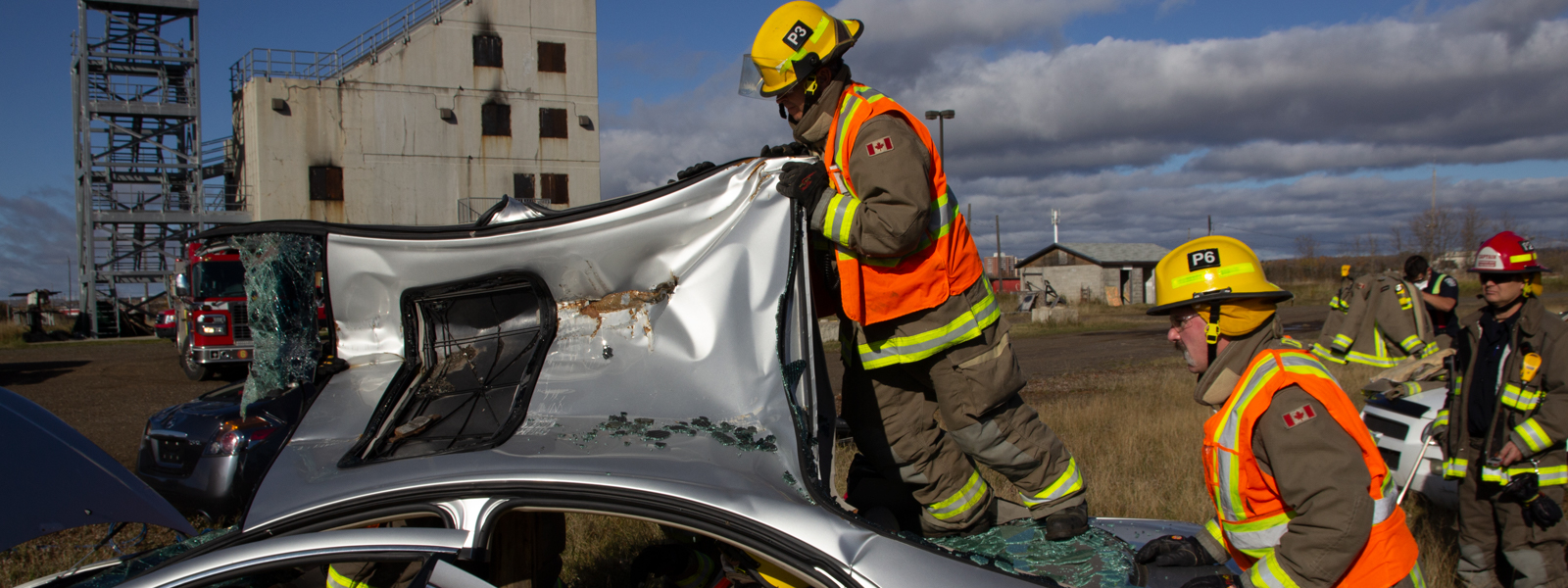Protecting Firefighters
Firefighters are often the first to arrive in emergency situations ranging from car crashes to medical distress calls to house fires. As a result, their chance of being exposed to COVID-19 and other transferable diseases is higher than the general public. The nature of their job also has a negative impact on their mental health. According to kinesiology professor Dr. Kathryn Sinden, “COVID-19 has created a unique and challenging context where their risk for experiencing mental health conditions has increased.” This prompted her to apply for a $49,968 Knowledge Synthesis COVID-19 rapid response grant from the Canadian Institutes of Health Research. Since receiving the grant, Dr. Sinden has been conducting research with a team of firefighters who are appraising information specific to firefighter mental health in peer-reviewed academic journals, online information platforms, and existing guidelines provided by firefighter associations. Their results will be used to develop strategies to help the firefighter community better manage their mental health and prevent illness.
Tech Revolution
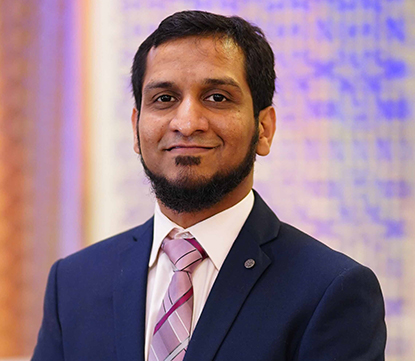 “Today’s wireless communication is very demanding and highly competitive,” said Dr. Farhan Ghaffar in a major funding announcement about his research. “There is a never-ending need for innovation in the design of components and systems.” Dr. Ghaffar is an electrical engineering professor at Lakehead University-Georgian College who is using his $152,500 grant from the Natural Sciences and Engineering Research Council to develop smart radio frequency components. These components can be used in applications including autonomous vehicles, the Internet of Things (IoT), and cell phones. “The fundamental idea of this work is to contribute to the infrastructure development of 5G and IoT communications.” Dr. Ghaffar’s research is using a novel technology called Frequency Programmable Microwave Substrate (FPMS) to find viable solutions in various wireless applications.
“Today’s wireless communication is very demanding and highly competitive,” said Dr. Farhan Ghaffar in a major funding announcement about his research. “There is a never-ending need for innovation in the design of components and systems.” Dr. Ghaffar is an electrical engineering professor at Lakehead University-Georgian College who is using his $152,500 grant from the Natural Sciences and Engineering Research Council to develop smart radio frequency components. These components can be used in applications including autonomous vehicles, the Internet of Things (IoT), and cell phones. “The fundamental idea of this work is to contribute to the infrastructure development of 5G and IoT communications.” Dr. Ghaffar’s research is using a novel technology called Frequency Programmable Microwave Substrate (FPMS) to find viable solutions in various wireless applications.
Become a Mentor
Would you like to share your knowledge with a student? Lakehead Connect is a networking and mentoring platform that matches students with alumni, faculty, and staff to spark inspiring career conversations. The platform, powered by Ten Thousand Coffees and sponsored by RBC Future Launch, is a fantastic way to support young people trying to navigate a challenging time in their lives. Each month, students and mentors are introduced to one another based on their goals and interests. Once an alum has been matched, their student will be able to ask them questions, practice soft skills, and begin preparing for their career. It’s easy to get involved, just visit lakeheadu.ca/alumni for more information or sign up directly.
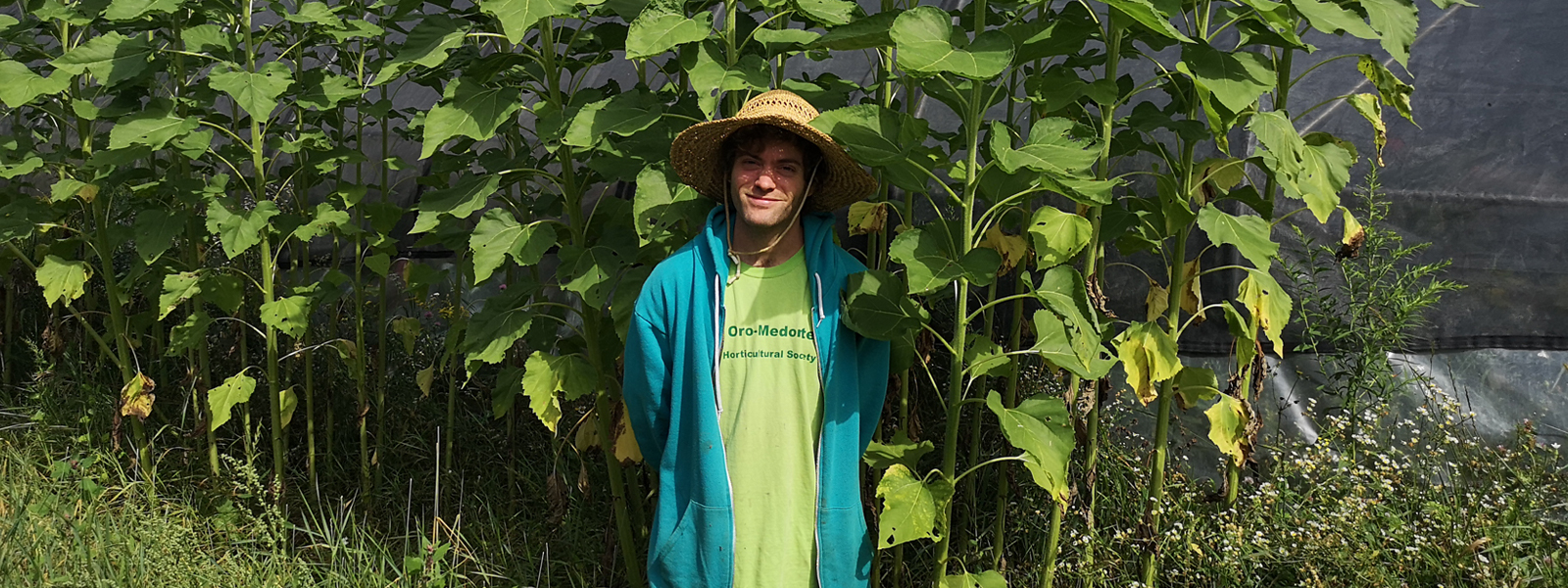
Jacob Kearey-Moreland grew up on a farm in Simcoe County and now co-owns Bass Lake Farms in the township of Oro-Medonte near Orillia.
Outstanding Citizens
Kearey-Moreland has been a driving force behind local community gardening initiatives for over a decade – in Toronto as an undergraduate student, in Orillia as a community advocate, and now as a Master of Education student at Lakehead. His efforts have earned him Lakehead’s 2020 Lloyd Dennis Award for outstanding citizenship. “Community gardening is as much about growing a community as it is about producing food,” Jacob said. “It’s like a communal outlet people can plug into, where social and ecological action can happen together.” On the Orillia campus, he has helped bring to life the butterfly garden, the traditional Three Sisters garden, the Four Directions teaching garden, and the community and allotment vegetable gardens. He also dedicates countless hours to fundraising, event planning, public speaking, advocacy, and outreach.
On the Thunder Bay campus, Laura Deschamps, a 2020 Honours Bachelor of Kinesiology grad, is the recipient of this year’s Robert Poulin Award for outstanding citizenship. She proposed the creation of a kinesiology peer-mentoring program after volunteering as a teacher’s assistant during her fourth year at Lakehead University. “I realized there was a need to help lower-year students navigate the program after I received several questions about course selection, the thesis process, graduate school applications, among others,” she said. Laura has also been very involved in the community as a volunteer with the Special Olympics and the organizing committee of the Walk to End ALS. In addition to her kinesiology degree, Laura is now studying to be a doctor at the Northern Ontario School of Medicine.
Lakehead for Life
A dedicated group of students, under the guidance and leadership of External Relations Associate Jacquie Kent, has become an integral part of the Lakehead Orillia campus community. The Lakehead University Student Alumni Association (LUSAA) is often called upon to support and participate in university-wide events, in addition to their many student outreach activities. LUSAA’s hard work was recognized this year by Canadian Council for the Advancement of Education (CCAE) with a bronze Prix d’Excellence award in the Best Student/Young Alumni category. The CCAE judging panel noted that “LUSAA is a student-led chapter of the Lakehead University Alumni Association, whose primary purpose is to increase awareness of the Alumni Association and engage with the current student body at Lakehead University’s Orillia Campus, setting the stage for a lifelong relationship between graduates and the University.”
Mineral Exploration
Geology Professor Dr. Pete Hollings is receiving $300,000 from the Natural Sciences and Engineering Research Council of Canada and $150,000 from Clean Air Metals Inc. to investigate the Thunder Bay North igneous complex, part of the 1.1 billion-year-old Midcontinent Rift. “My team and I will characterize how and when the rocks formed and investigate how the key metals made their way into the various intrusive units found within the property,” Dr. Hollings said. This research will help Clean Air Metals’ exploration efforts at the Escape Lake and Thunder Bay North deposits and, hopefully, assist with mineral production.
Getting Rocky
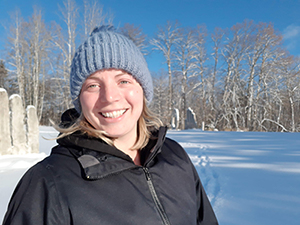 Two Lakehead alumni have recently had their honours thesis research published in international peerreviewed journals. Sadie Fischer, who earned her Honours Bachelor of Environmental Science in 2016, co-wrote a paper with her supervisor Dr. Phil Fralick that appeared in the August 2020 edition of the Canadian Journal of Earth Sciences. It is the first description of mats of bacteria that lived on the shallow, sandy seafloor in the Thunder Bay area 1,878 million years ago. The rocks preserve evidence of this ancient life. This “pond scum” bound sand grains together and created odd structures in the rock layers, even though the bacterial mats themselves have degraded into thin streaks of carbon.
Two Lakehead alumni have recently had their honours thesis research published in international peerreviewed journals. Sadie Fischer, who earned her Honours Bachelor of Environmental Science in 2016, co-wrote a paper with her supervisor Dr. Phil Fralick that appeared in the August 2020 edition of the Canadian Journal of Earth Sciences. It is the first description of mats of bacteria that lived on the shallow, sandy seafloor in the Thunder Bay area 1,878 million years ago. The rocks preserve evidence of this ancient life. This “pond scum” bound sand grains together and created odd structures in the rock layers, even though the bacterial mats themselves have degraded into thin streaks of carbon.
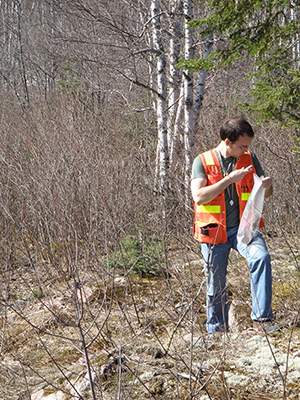
Ben Kuzmich’s research, in a paper co-written with Shiwei Wang, Pete Hollings, Taofa Zhou, and Fangyue Wang, has been published in the Precambrian Research journal. Ben’s study of the Dog Lake chain granites north of Thunder Bay, which was done in conjunction with Dr. Hollings, used petrography and geochemistry to develop a new model of the granites’ formation. Ben graduated in 2012 with an Honours Bachelor of Science in Geology before completing a Master of Science at Lakehead in 2015.
Understanding Atrocities
Photos and visual imagery saturate contemporary society. But what are our responsibilities when photos document the dark side of human life?
“Photographs are how I came to learn history,” said Dr. Valerie Hébert, a history and interdisciplinary studies professor at Lakehead Orillia. “My grandfather had a book of Time Life photographs chronicling major events of the 20th century. They gave me a visual vocabulary for events I would later study, write, and teach about." Dr. Hébert has received a three year $51,473 Insight Grant from the Social Sciences and Humanities Research Council of Canada to write a book about the complex ethical dilemmas that arise from viewing, exhibiting, and engaging with images of atrocity, specifically photographs taken during the Holocaust. “In a sense, this project brings me full circle to where my interest in history began.” Dr. Hébert’s book will discuss the role that photographs can play in understanding atrocity and provide guidance for engaging with these kinds of images in a respectful and sensitive way.


